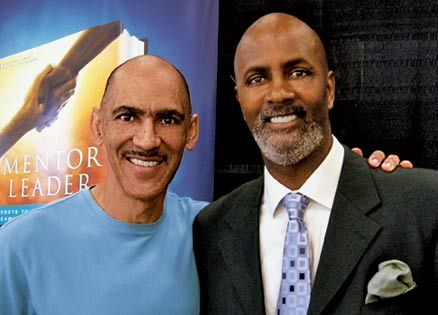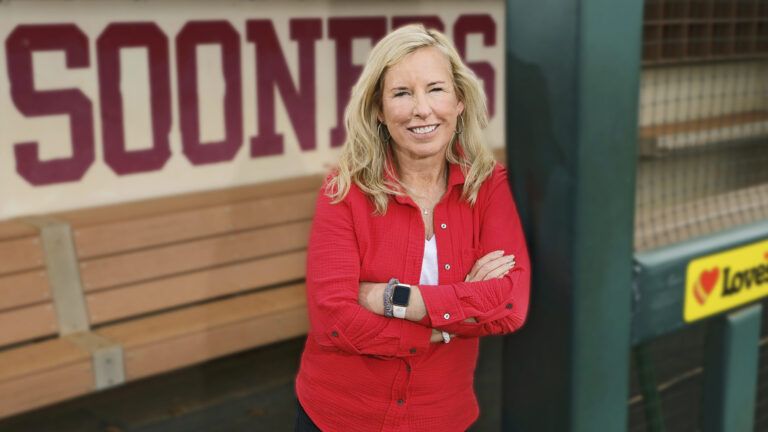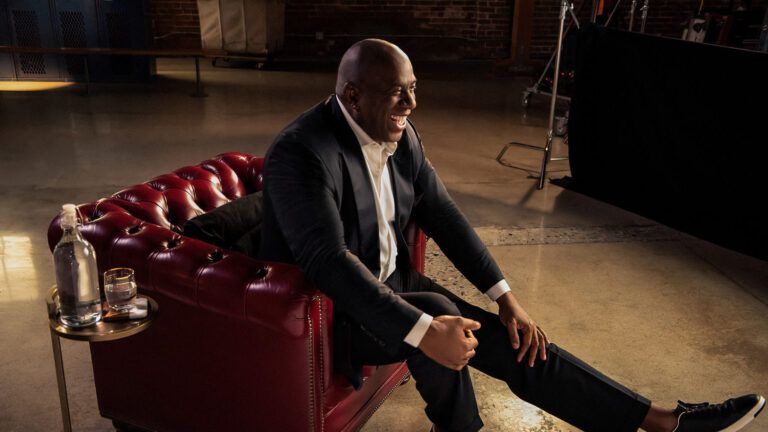Tom Lamphere, team chaplain for the NFL’s Minnesota Vikings, and I were having breakfast at Jerry’s Market when he said something that took me by surprise. “Tony, let’s study the Book of Nehemiah.”
I’d been with the Vikings for a year as their defensive coordinator, a position I hoped would lead to my dream job: NFL head coach. Tom and I had become good friends, and I considered him a spiritual mentor.
Still, I couldn’t help but wonder, Where is he going with this?
“It’s only thirteen chapters but Nehemiah is filled with lessons about leadership,” Tom said. “Lessons that I’d like you to apply to your own life.”
I nodded.
“I see you becoming a head coach,” he said. “And when God gives you that opportunity, I want you to be prepared.”
I started reading Nehemiah, and Tom and I got together for breakfast every Monday to talk through each chapter. Nehemiah was a Jewish official in the court of the Persian king. With unwavering faith in God, he led the people of Jerusalem to rebuild the walls of protection around the city in just 52 days.
The more Tom and I discussed Nehemiah, the more I saw how God had already been working some of those vital leadership lessons into my life through the mentors he put in my path. Other lessons I had yet to learn.
Nehemiah 5:15-16 “The early governors…lorded it over the people. But out of reverence for God I did not. Instead I devoted myself to the work on this wall.”
I grew up in Jackson, Michigan. Besides my parents, CleoMae and Wilbur Dungy, the person I looked up to most was Allen Truman.
Allen was a tremendous athlete five years older than me. That’s a big deal when you’re 12 and in Little League. Allen was my coach, and he kept mentoring me after our season ended. He’d take me to Detroit Tigers games or to shoot hoops with his friends or just throw the football around.
Allen warned me about guys who had great talent but got caught up in thinking they were better than everyone else.
“You don’t have to run with the crowd,” he told me. “You have a lot of gifts. You’re going to do big things. Just stay focused.”
Later I realized that what Allen did for me was pretty exceptional. After all, when I got to be a teenager and star athlete myself, I didn’t always think about the scrawny 12-year-olds in the neighborhood who might need a role model.
It wasn’t until I studied Nehemiah that it hit me how Allen had been wise beyond his years.
When Nehemiah was appointed governor of Jerusalem, he didn’t take advantage of people like his predecessors had. He treated everyone fairly, from the nobles to the poor, and stayed focused on his mission, two hallmarks of a good leader that my boyhood hero and mentor Allen instilled in me.
Nehemiah 4:19-20 “Then I said to…the people, ‘The work is extensive and spread out, and we are widely separated from each other along the wall. Wherever you hear the sound of the trumpet join us there. Our God will fight for us!”
I’ll never forget Leroy Rockquemore, the African-American assistant principal at my predominantly white junior high. One of the first days of school Mr. Rockquemore sat down next to my friends and me in the cafeteria. For a small man, he had a big, booming voice.
“What do you boys think of the Jackson 5?” he asked. “And what’s up with the Tigers?”
Why is the assistant principal being so nice? I wondered. What does he want from us?
Mr. Rockquemore kept dropping by our lunch table, asking us about our families and friends, our interests. It took me a while to figure out he was making an effort to learn more about us because he cared.
Even after I moved on to Parkside High School, Mr. Rockquemore kept tabs on me. I was the starting quarterback on the varsity football team. Senior year the coach named me co-captain along with a white teammate.
The other captain was a top player but so was my friend Bobby, who’d been leading the offense with me since sophomore year. Like me, Bobby was black and I believed that he’d been passed over because Parkside had never had two black captains.
I was so incensed, I quit the team. I figured I’d just concentrate on playing basketball.
Right before fall practice, I got a phone call. I recognized that booming voice. Mr. Rockquemore. “Tony, come to my house. I need to speak with you.”
I sensed Mr. Rockquemore was going to try to talk me into going back to the football team, and I really didn’t want to discuss it. Still, I met with him. I respected him too much not to.
“You love playing football,” he said. “And the other guys on the team look up to you as a leader. You’ve got to reconsider this.”
“No way,” I said. “It’s not fair…”
Mr. Rockquemore silenced me with a look. “Tony, you have a God-given talent. Why would you let anything stop you from doing what you have the ability to do?”
That got me. I loved football. If I believed God had given me my talent for the game, why should I let anything get in my way of fulfilling it?
I swallowed my pride (no easy feat at age 17 and still something that’s hard to do) and returned to the team. We went on to have a strong season, one that got me noticed by college scouts.
If Mr. Rockquemore hadn’t talked sense into me, I wouldn’t have gotten a scholarship to play quarterback for the University of Minnesota. He showed me how a leader handles challenges, by facing them and not running from them, a lesson I saw repeated in the Book of Nehemiah.
Nehemiah and his people faced great opposition—scorn, hatred, threats—yet he never let any of that sway him from his goal. He rallied his team to defend themselves against attack and continue rebuilding the wall, reminding them that God was with them every step of the way.
Nehemiah 9:33 “In all that has happened to us, you have remained righteous; you have acted faithfully…”
I graduated from Minnesota a team MVP, sure that I would be going to the NFL as a quarterback. But on draft day, the phone never rang. Finally I signed with the Pittsburgh Steelers as a free agent. Coach Chuck Noll played me as a reserve, mostly on defense, and on special teams.
All-Pro safety Donnie Shell and I roomed together. My second year I got mono in training camp. I went from practicing with the guys to sitting on the sidelines. One night I vented to Donnie, “Why would God lead me to this point only to set me back?”
“Tony, you’ve always said that God is number one, that he knows what’s best. But now that you’re faced with this challenge, it doesn’t seem like that’s what you really believe.”
Whoa. Where was my faith? Right there in our training camp dorm room, I got down on my knees. Lord, I’m ready to put you first. I believe that I’m going to get better and play but if I don’t, I trust you to let me be able to handle it.
You know what? I got better. The Steelers won the Super Bowl that year. But the next season I was traded. The following year I was traded again. My understanding of what Donnie, who was as much a faith mentor as a football mentor, taught me about trust deepened.
As chapter nine of Nehemiah recounts, God keeps his promises to us and provides for our every need, and a good leader remembers who the true leader is.
Nehemiah 8:10 “…for the joy of the Lord is your strength.”
My playing career lasted just three years. Then in 1981, Chuck Noll hired me as the defensive backs coach for the Steelers. I was only 25, the youngest coach in the NFL.
Most of the players were older than me. They’d been showing me the ropes not long ago, and now I was supposed to tell them what to do? As if they’d ever listen to me like they listened to Coach Noll!
My first day on the job Coach Noll sat me down. “Look, I hired you because I like what I see in you,” he said. “Don’t try to imitate me. Be who you are and concentrate on your strengths.”
I was relieved to hear that from someone I respected so much as a leader and as a person. I was still learning the X’s and O’s but I could rely on my greatest strength, my faith. From then on I coached with a confidence that came from knowing God was truest to me when I was truest to myself.
Being a mentor leader means bringing out the best in people, like Coach Noll did with me. And Nehemiah did with the people of Jerusalem, for example, stepping aside and letting Ezra, with his priestly expertise, explain the law of God.
Nehemiah 1:11 “Lord, let your ear be attentive to the prayer of this your servant… Give your servant success…”
I coached for the Steelers for seven years. Next came a three-year stint with the Kansas City Chiefs. Then I landed the job as defensive coordinator for the Vikings. That’s what brought me to those weekly talks with Tom about the Book of Nehemiah.
Our breakfast Bible study honed in on two key points. One: Nehemiah’s opportunity to help his people rebuild Jerusalem came in God’s time, not his. Two: Nehemiah equipped his mind and heart to be ready for that opportunity.
The preparation I understood. I grew my knowledge of football tactics and strategies. I made myself think of the big picture, as if I were leading not only the defense but the entire team.
It was the waiting I struggled with. Two years passed and no head coaching openings came my way. I was frustrated, very frustrated.
“Just keep doing your job and wait on God’s timing,” Tom said, reminding me how Nehemiah kept praying and waiting until the king of Persia granted him leave to go to Jerusalem.
The following year, 1996, it happened: I became the head coach of the Tampa Bay Buccaneers. Thanks to Tom’s spiritual mentorship, I was ready for the responsibilities that came with that job and for what came down the road—becoming the first African-American head coach to win a Super Bowl when I led the Indianapolis Colts to victory in 2007.
I retired from coaching three years ago, but I’m still involved with the game I love. These days you can find me on the Sunday night NBC show, Football Night in America.
I’m grateful to God for this newest opportunity, as grateful as I am for the people he brought into my life to lead me on the path he planned for me.
Allen Truman. Leroy Rockquemore. Donnie Shell. Chuck Noll. Tom Lamphere. Mentors. They guide us and challenge us to be our best. They shape our faith and our lives. Good mentors create good leaders.






